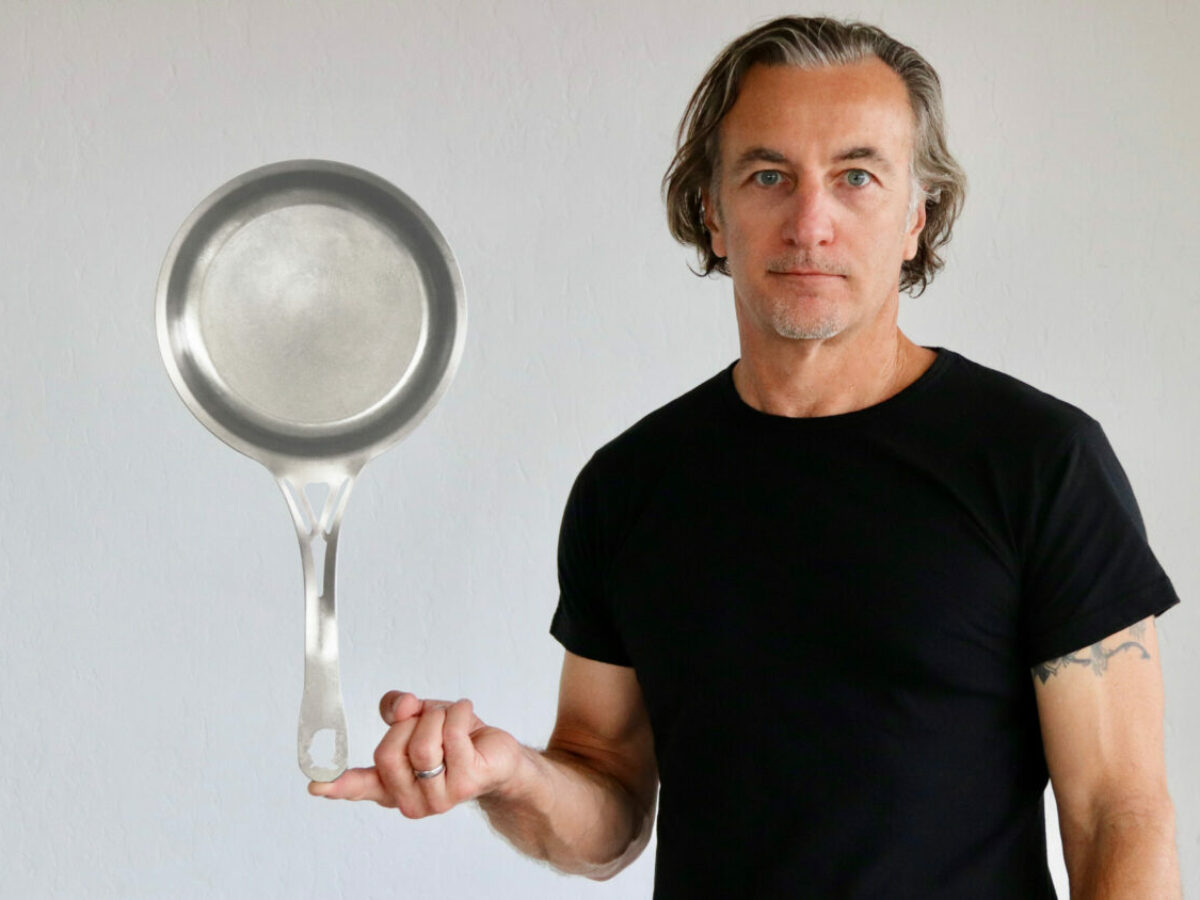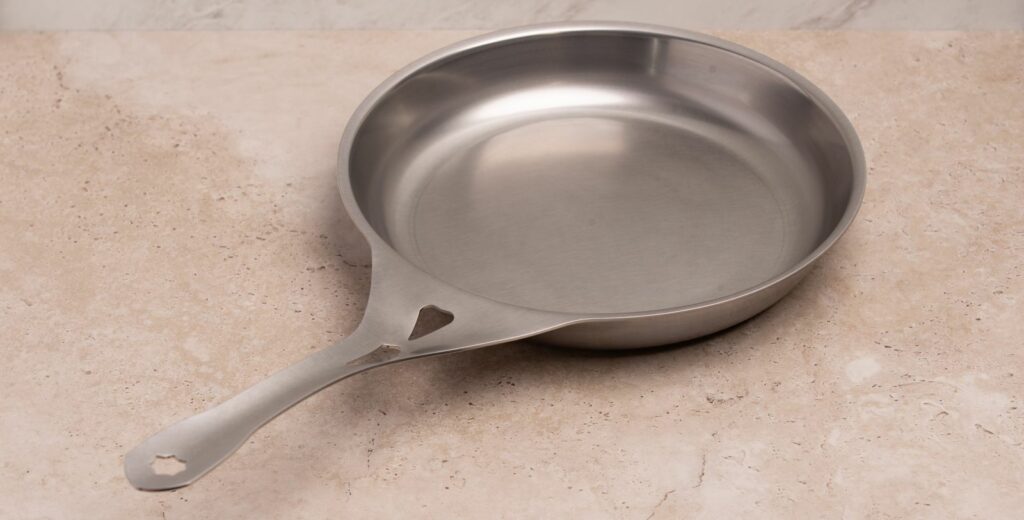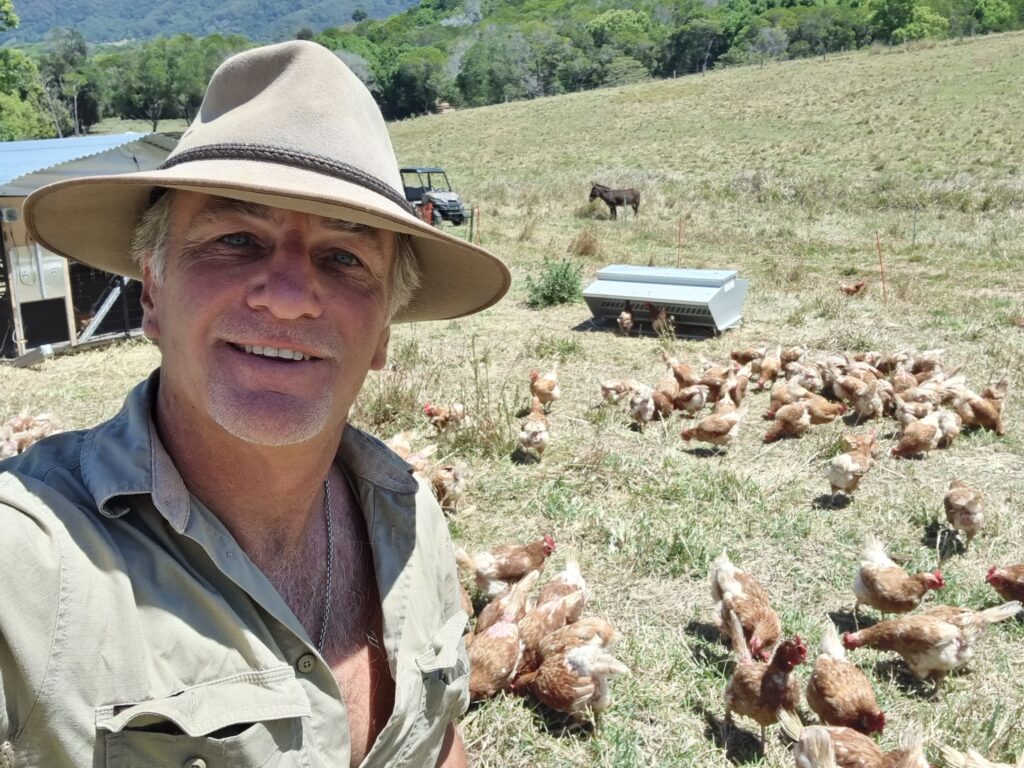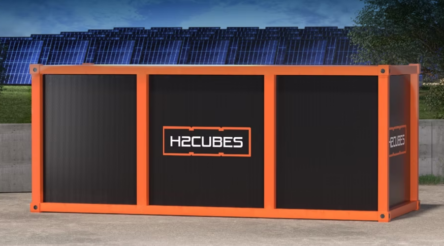Cooking up Australian kitchen classics

As we near the March 8 closing date for nominations, Australia's 50 Most Innovative Manufacturers looks at Australia's only bona fide maker of pots and pans. Brent Balinski speaks to Mark Henry, founder of Solidteknics, about a career innovating for those who are serious about what they do in the kitchen.
If he’s not challenging his contract manufacturers, then a product’s not worth making, believes Mark Henry.
The founder, Managing Director and Chief Engineer of cookware business Solidteknics says the reward is years of orders for the contractor.
“If it’s that easy or it’s been done before, then there’s no point doing it if you’re manufacturing in Australia. It has to be true innovation,” he tells @AuManufacturing.
“The benefit is they’ve got a cash cow that goes on for decades.”
It’s unusual to hear a business talk of making things with a “multi-century warranty” and that should ideally become family heirlooms, but Solidteknics is an unusual business.
Do you think you belong on @AuManufacturing’s list of Australia’s 50 Most Innovative Manufacturers? Apply to be recognised in this exclusive group here.
The founder says it’s the nation’s sole legitimate cookware manufacturer (there are some artisans and some importers, but they don’t count) and was established as the antithesis of the affordable, disposable gear that many Aussie kitchens are stocked with.
“I’m not a fast thinker, so I prefer to do something right the first time and make it a classic so I can keep making the same thing for years and decades,” explains Henry.

Noni Lightning frypan (credit Solidteknics)
“And if enough people agree and they sell, then it’s got the potential to go on for more than one generation. And that’s what’s happening with Furi knives, with the chefs recommending them still to their apprentices.”
He started the company in 2014 after selling his first venture – Füritechnics, a high-end knife business he founded while at university – then establishing a new knife and sharpener division at France’s de Buyer Industries, and then working out a way to mechanise production of wrought iron pans. (It was a world-first. Otherwise why bother?)
As with Füri, Henry has managed to create a desirable brand as well as one underpinned by technical expertise.
He credits a double-degree at QUT combining mechanical engineering with business (including a marketing major) as pivotal: “I understood how things that I make could be turned into a brand people liked the look of… And if you get a brand and some IP protection for what you’ve invented, then you might have a sustainable business.”
Solidteknics has earned a cult following among cooking tragics, and its closed Facebook group (with over 18,000 members) is used to generate a buzz about upcoming products and offer devotees collectible products.
From the beginning, Kickstarter has been a go-to for product launches, most recently the Noni Lightning range. This features ferritic stainless steel, but in 2 millimetre rather than the previous 3 millimetre thickness offered, therefore weighing less and heating quicker.
While its benefit in validating an idea might seem obvious, Henry says crowdfunding has proved useful for tooling costs and managing cash flow.
Besides stainless steel, the other main material choice is iron, in raw, satin and quenched finishes, again wrought from a single sheet. (An early cast iron variety of products was discontinued.)
As with Furi knives, Solidteknics pots and pans are one-piece items. Henry explains this in terms of “reducing things until they’re as simple as possible. Because I know that means durability.” Besides, rivets and seams just accumulate gunk.
There seems to be a fast cadence of new releases out of Solidteknics – with a recent 51st Australian Kickstarter campaign – but the goal is products that last.
There’s enough disposable crap in the world, believes Henry, who says about 1.2 million nonstick pans – often coated with chemicals that the world is phasing out for health reasons – end up in Australian landfills each year.
A single piece of stainless steel or iron that can’t crack could only be damaged by wearing through the base, he suggests, which might possibly take millennia.
As for innovation, what does it mean to an entrepreneur who prefers to have their goods made here, and which tend to be for a quality-minded audience?

He says novelty is a given, otherwise you can’t protect what you’re making by patent, and to protect what probably need to be high margins.
If you use contract manufacturers, you’ll be making novel demands of them, too.
“Of course, novelty: that’s just the starting point. Innovation needs to have novelty to be protected,” Henry shares, adding that what they sell isn’t cheap, but isn’t the absolute priciest option.
“There’s Chinese-made cookware that’s more expensive than ours because it’s got a celebrity chef on the box. That kind of thing. And they’re disposable and toxic. They’re synthetic-coated. So I think you’ve got to be able to have IP protection so that by definition it needs to be a world first. That’s my simple [innovation] definition I think.”
In this episode of @AuManufacturing Conversations, Henry tells us more about the imperative of world-firsts, as well as having a serious crack at the US market this year, just whose responsibility it is to re-grow the local skills that have disappeared, his best guess at what artificial intelligence will do to manufacturing, and more.
Episode guide
1:02 – Started as a kid curious about how things worked, got inspired by a grandfather who was an old-school backyard inventor, studied a trade then mechanical engineering.
3:10 – Launching his first company in 1996 while at university.
4:22 – The special feeling of seeing products with longevity out there and being used.
6:15 – A world-first in mechanising wrought iron production and toughness of these pans.
7:33 – Getting rid of unnecessary complexity with one-piece products. Rivets, plastics, gaps just add points of failure.
8:20 – Honours thesis on knife materials and cutting edges and the value of this.
10:48 – Why the choices were made for wrought iron and nickel-free stainless steel in most cookware.
12:25 – No stainless steels are made in Australia, so he had to look to a mill in Finland.
14:58 – Key contractor is a family business in Sydney.
16:38 – Designing products to become classics that can be made for decades after release.
18:53 – All the Australian cookware has gone. If anything remains it’s made offshore. Those skills were lost.
20:56 – Henry’s predictions on what the rise of the robots will do to manufacturing, and why artisan skills will still be important.
24:02 – Innovation needs novelty, but that’s just the starting point.
25:36 – The use of Kickstarter after operating in a more traditional way. It helps with cashflow.
29:35 – Exclusive launches through their closed Facebook group.
30:40 – As Popeye used to say: “I is what I is.”
31:46 – Some more thoughts on designing products to be used across generations.
35:20 – Estimates that 1.2 million nonstick pans go into Australian landfill each year. They’re designed to be disposable.
37:05 – How the company plans to celebrate their decade anniversary this year.
39:40 – A goal in the next few years is to show more people on how you can manufacture successfully here.
Pictures: supplied
Australia’s 50 Most Innovative Manufacturers is an annual campaign by @AuManufacturing. It has been made possible through the generous support of MYOB, CSIRO, the NSW government’s Advanced Manufacturing Research Facility, and the Commonwealth Bank. Be sure to check back at this website for regular updates, including profiles of nominees and other information.

@aumanufacturing Sections
Analysis and Commentary Awards casino reviews Defence Gambling Manufacturing News Online Casino Podcast Technology Videos





